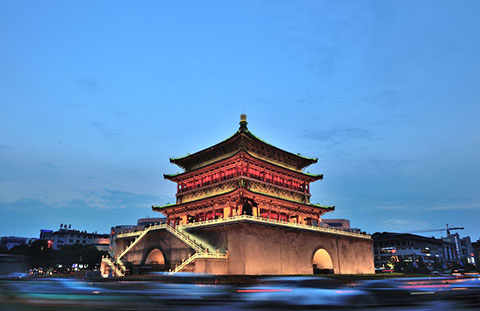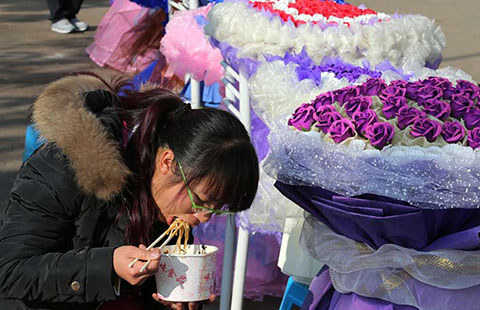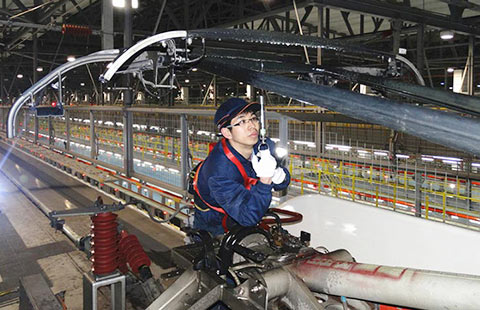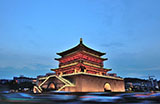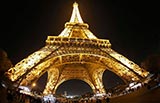Groundless, unfair to blame China for hardship
(Xinhua) Updated: 2016-02-16 03:32BEIJING -- It is groundless and unfair to blame China for the global slowdown and market volatility, and naysayers' misjudgments highlight their ignorance on the world's second-largest economy.
Billionaire investor George Soros' recent "hard landing" prediction at Davos renewed the decades-long "doom" theory about the Chinese economy. Other Western analysts accused China of causing global stock market swings last week.
Pessimists misunderstand the Chinese economy, or they just choose to turn a blind eye to the bright spots that really matter.
At the same time, those who blame China underestimate the West's own problems, which were and are the major cause of global economic woes.
China's globally-scrutinized stock market remains anemic following an unprecedented rout last summer. Lax supervision and immature investors were among the main reasons. The economic fundamentals able to sustain a long-term bullish market remain in place.
It is illogical to say that the stock plunges across the globe stemmed from China, which closed trading for a week to celebrate the Chinese Lunar New Year and did not unveil any data or implement any new policies.
Some observers said the root cause of the sweeping drops was that economic fundamentals in the West failed to support a prolonged gaining market fueled by a flood of liquidity since 2008.
To cope with the 2008 global financial crisis, many central banks had adopted easy monetary policy with very low interest rates, which encouraged excessive speculation and led to asset price bubbles.
Recent Western market swings were also partly due to persistently low crude oil prices, which forced oil producing countries to repatriate their sovereign wealth funds from overseas stock markets to ease domestic money strain.
The withdrawing of the huge amount of capital added pressure on Western banks and thus intensified the market slump.
It is undeniable that China's pace of growth has slowed, but newly-added economic output in 2015 was more than the GDP of Sweden or Argentina. China is still a key propeller of the world's economic growth, contributing more than 25 percent of global growth in 2015.
The world started a guessing game way back in the 1990s on when the Chinese economic miracle would collapse.
- Chinese banking sector's bad loan rate rises in 2015
- Heilongjiang's winter tourism booms despite annoying warmth
- Railway passenger trips hit record high as holiday ends
- Market turbulence exposes weakness of global economy, rather than China
- Chinese shares close lower - Feb 15
- HKMA respects HSBC's decision to remain headquartered in London
- Chinese company plans to sell its 50% share in Microsoft Online
- Chinese, Thai passengers drive growth at Cambodian airports

